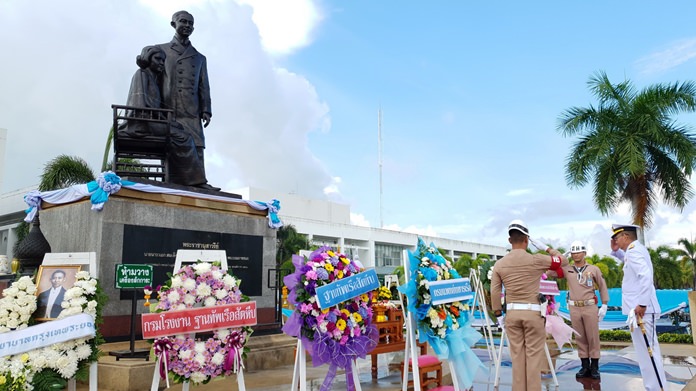
The Royal Thai Navy marked the founding of modern dentistry, pharmacology, nursing, public health and social welfare in Thailand on Mahidol Day.
Rear Adm. Surasing Prapaipanitch, director of Queen Sirikit Naval Medical Center, presided over a Sept. 24 wreath-laying ceremony to honor Mahidol Adulyadej, Prince of Songkhla and the “father of Thai medicine” in front of the hospital.
Born the 69th son of King Chulalongkorn on New Year’s Day 1892, Mahidol was sent abroad after being named Prince of Songkla at age 13. He didn’t return to Thailand until the outbreak of World War I. After resigning from the Navy after a nine-month stint, Mahidol was taken to Siriraj Hospital by half-brother Prince Rangsit, a lower-ranked prince who felt the hospital needed a bigger presence to improve its quality. Shocked at what he saw, Mahidol agreed to help his brother improve the hospital and spent the next several years learning medicine in the United Kingdom and the United States.
During that time the prince personally bankrolled the education of two Thai students at U.S. medical universities. One of those turned out to be 18-year-old Sangwal Talabhat, who would later marry the prince and sire Thailand’s next two kings.
Mahidol died Sept. 24, 1929 of kidney failure, but his legacy remains. Many students sent abroad under his scholarships became key players in modern Thai medicine and helped establish new medical schools and universities. The Royal Medical College later became Faculty of Medicine at Siriraj Hospital, a key faculty of the Medical University founded in 1943. In 1969, the Medical University became Mahidol University and Prince of Songkla University. Finally, the Prince Mahidol Award was created in 1992 and given to pioneers in medicine, public health, and social services.
 |
 |





